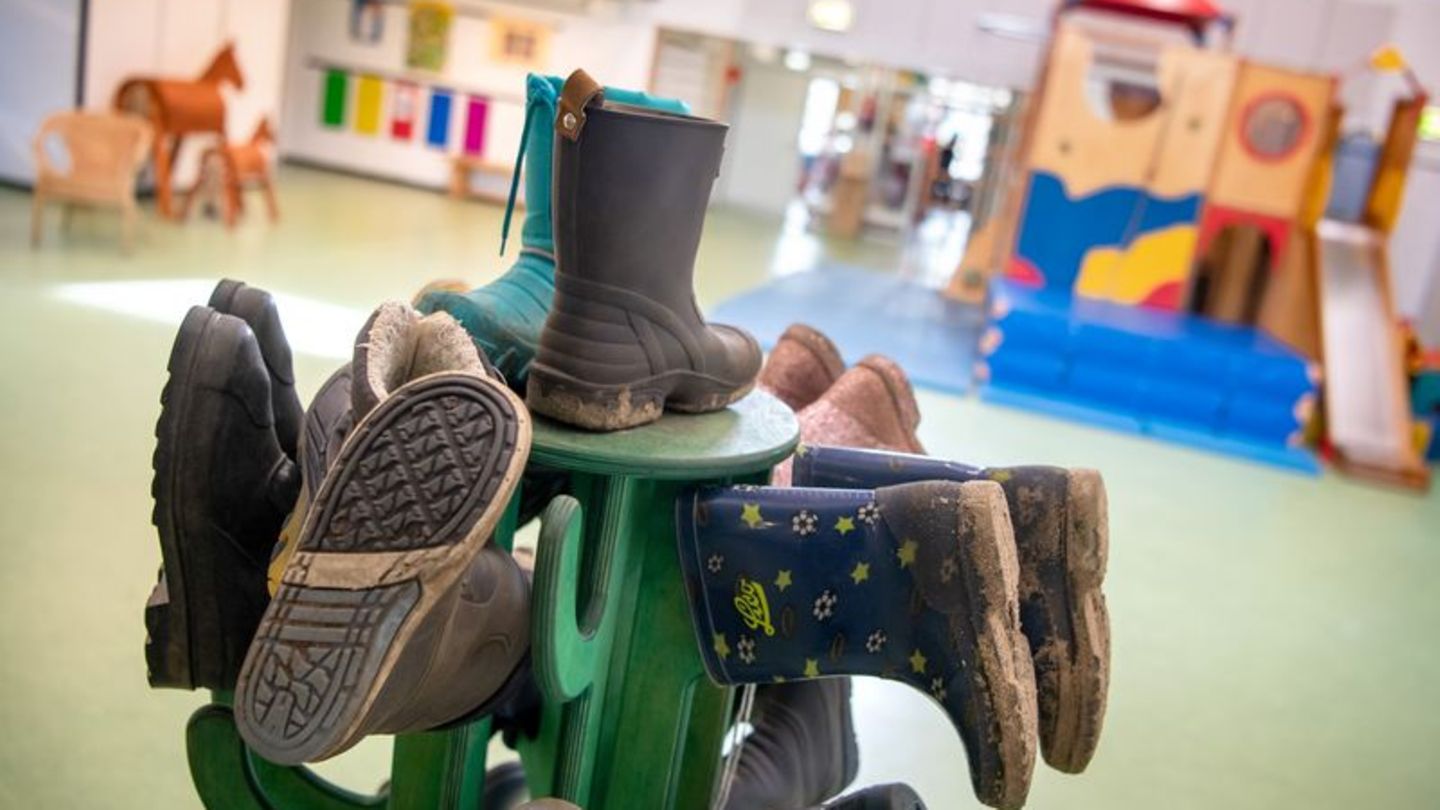Many parents of small children want a daycare place – but it is often difficult to find one. According to a new study, the situation remains very tense, particularly in West Germany.
According to a study, there is a shortage of around 306,000 daycare places for children under the age of three in Germany this year. This means that the needs of 13.6 percent of children of this age are not covered, according to a current analysis by the German Economic Institute (IW), which is available to the German Press Agency.
Accordingly, the gap has decreased by 38,200 places in 2023 compared to the previous year. Overall, the expansion of childcare places in Germany is “currently making little progress,” according to the study. As in previous years, there is a large gap, especially between East and West Germany.
While this year, according to calculations, there is a lack of 277,900 places for children under three in West Germany, there are only 28,200 in East Germany. In 2023, the gap in western Germany was still 310,200 places and in the east it was 34,200. However, the IW figures do not show a constant decline in the shortage of places. Overall, the extent of the unmet need for daycare places for children under three has fluctuated over the past ten years – but at a high level. According to study author Wido Geis-Thöne, both potential daycare places and possible childminder places were taken into account in the calculation.
Requirement for more than 1.15 million places for children under three
According to the study, the calculated gap of exactly 306,100 places is based on a representative parent survey by the Federal Ministry for Family Affairs. A total of 8,754 parents were surveyed about their need for childcare places for children under the age of three. Extrapolated to the current year, the IW assumes that a total of 1.154 million childcare places will be needed for this age group this year. Of these, just over 848,000 are currently occupied – which creates the corresponding gap.
Overall, the analysis assumes that fewer children can be expected in the coming years due to declining birth rates. In the East, “a dismantling of the care infrastructure is unavoidable,” it is said. From the experts’ point of view, the freed up human resources should be invested in higher quality facilities. This is also the aim of an amendment to the so-called Kita Quality Act, which the Bundestag passed last week. Accordingly, the money that the federal government makes available to the states for childcare, a total of almost four billion euros in the next two years, should primarily flow into recruiting and retaining staff in the facilities.
For West Germany, study author Geis-Thöne calls for a much faster expansion of the care offering. The need there is “likely to continue to increase,” as the study states.
Source: Stern
I have been working in the news industry for over 6 years, first as a reporter and now as an editor. I have covered politics extensively, and my work has appeared in major newspapers and online news outlets around the world. In addition to my writing, I also contribute regularly to 24 Hours World.




